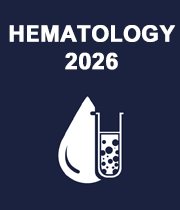Hematological Biomarkers
Hematology is a branch of medicine concerned with the study of blood, blood-forming organs, and blood disorders. The word "heme" comes from the Greek word "blood." Hematology is refined by experts in the field who deal with the diagnosis, treatment, and overall management of people with blood problems ranging from weakness to blood cancer. Hematology, often known as haematology, is the scientific study of blood, blood-forming organs, and blood diseases. Hematology is the study of the causes, symptoms, treatments, prognosis, and prevention of blood illnesses that affect the formation of blood and its components, such as blood cells, haemoglobin, blood proteins, and the coagulation mechanism. Hematology is a subspecialty of internal medicine that is distinguished from but overlaps with medical oncology. Clinical chemistries were determined using blood serum and haematological characteristics of blood samples taken at the start and end of the trial were measured. Our understanding of disease has been changed by molecular interrogation of genetic information, which is now regularly integrated into the workup and surveillance of haematological malignancies.



Title : Acute intermittent porphyria: A neurological dilemma obscured by ubiquitous fgastrointestinal presentation
Mayank Anand Singh, Mimer Medical College, India
Title : Comprehensive symptom management and supportive nursing care in a preterm toddler undergoing HSCT for pyruvate kinase deficiency
Tran Thi Dung, Vinmec International Hospital, Vietnam